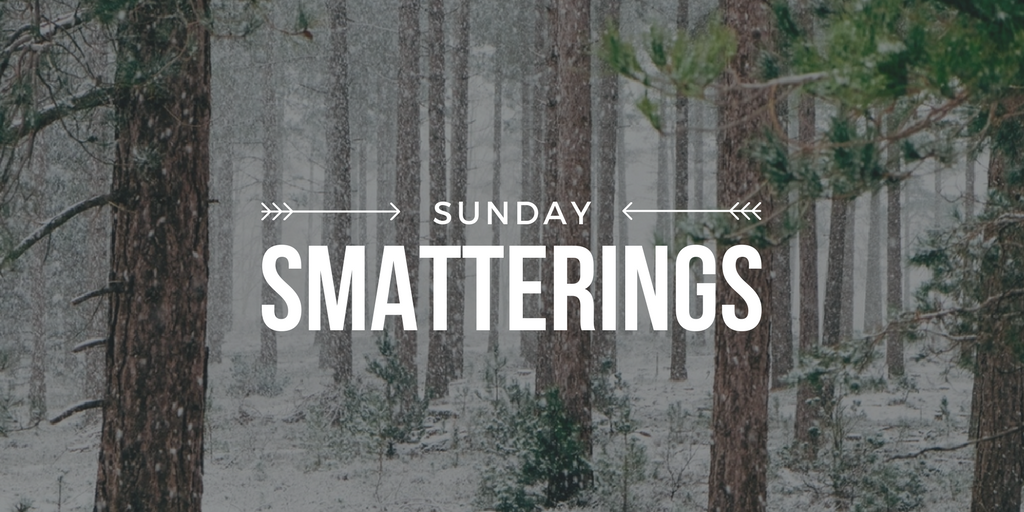1.15.17 - Sunday Smatterings
/Hello, my loves. How's your Sunday? Watching football, reading books, getting good R&R? It was a good week at Chez Ellison, a quiet, with really productive writing sessions. This week is a bit busier and capped off by the Midsouth EMMY Awards this Saturday. Cross your fingers for A WORD ON WORDS, we're nominated for Best Interstitial! #keepreading
Here's what happened on the Internets this week:
Well, y'all, it's January. It's a wee bit dark, and when it's not pitch black, it's a wee bit gray and wet. You may be getting cabin fever or, worse, feeling sad from SAD (Seasonal Affective Disorder). So why does Denmark, which endures a harsh winter every year, rank as one of the happiest countries in the world? The answer may lie in a little concept called hygge (pronounced "hoo-gah"), AKA developing a life of coziness.
There's a concept in the literary zeitgeist gaining popularity, and it's exceptionally worrisome: that writers should not write about what we don't know firsthand. This is a something I'll be exploring on the blog later this month, but to whet your appetite, I give you author Lionel Shriver, who doesn't care if you hate her sombrero.
Did your life seem bit more productive when you were in school? Do you miss that? (if you didn't enjoy school, ignore these two sentences) Chances are, you may be missing the structural goal setting that came with a syllabus. From the Productivityist, here's the easy way to plan out your year.
And speaking of productivity: if you have a big project you want to get done, jumpstart your progress by blocking off time to work on it during Monday morning. You may be surprised at how much easier it is to complete that project when you get momentum going early in the week.
It's no secret that I adore Diana Gabaldon, author of the Outlander series—which is why I relished this in-depth chat with Diana hosted by Harper's Bazaar. It's a long video, but you need to fast-forward to 27:04 to watch the way she composes a sentence. It is mind-blowing, and she is a master. (Also, she just turned sixty five. Sixty. Five. She is radiant.) Plus, the end had me in tears.
You may hear us writers talk frequently about "voice." But what exactly is a writer's voice, and how do they differentiate one from another? This post from fellow author Shane Hall is chock full of helpful information for writers or the curious reader.
Who doesn't love a good Myers-Briggs personality quiz? This one will tell you what kind of reader you are. I'm an INTJ, and my reader description was scarily accurate.
And closer to home:
This is what happens when you're a writer with bored cats. Trust me, it ain't pretty.
I revere silence. Not just because I'm an introvert—it's vital to my being, to my work. This is why.
Hey, Nicholas Drummond fans, listen up: Barnes & Noble has signed copies of the 4th Brit in the FBI book, THE DEVIL'S TRIANGLE, available for pre-order! They're signed by both Catherine and yours truly. Just sayin'.
That's it from me, y'all! Find a good book, get your hygge on, and we'll talk again soon.
xo,
J.T.





